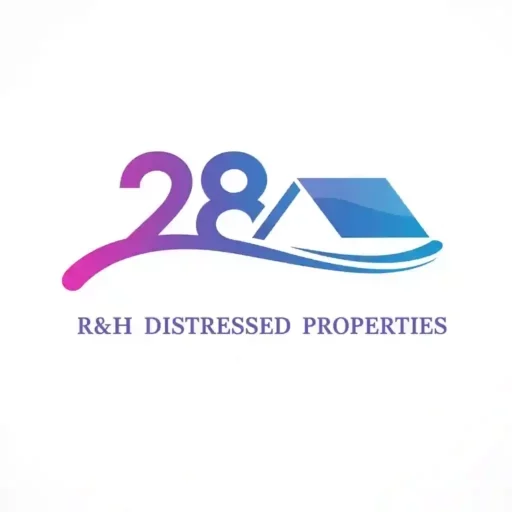Understanding the Oakland Vacant Property Tax (VPT)
Oakland’s vacant property tax is an important but often misunderstood measure that directly affects property owners throughout the city. Whether you inherited a property that’s been sitting empty or you’re holding onto land you planned to develop “someday,” this tax could be costing you thousands each year.
What Is the Vacant Property Tax in Oakland, CA?
The vacant property tax in Oakland, CA, was implemented on November 19, 2019 to address the city’s housing shortage and discourage long-term property vacancy. The tax applies to residential, commercial, and vacant lots that have been left unused for more than 50 days in a calendar year.
If your property meets this definition, you may be required to pay the vacant property tax Oakland CA imposes annually. The cost can range from $3,000 to $6,000 per parcel depending on the property type. This amount is levied in addition to regular property taxes.
How the City of Oakland Enforces the Vacant Property Tax
The City of Oakland vacant property tax is enforced by the Oakland Finance Department. Property owners are required to self-report the vacancy status of their property. However, the city also conducts random inspections and uses complaint-based enforcement to identify violators.
Owners found in violation may be subject to steep penalties and interest in addition to the annual tax. The city also provides a formal appeal process, but timelines are strict and documentation must be thorough.
For more information, visit the City of Oakland’s official website.
Exemptions and Appeals for the Oakland Vacant Property Tax
Not every vacant property is taxed. Exemptions may apply in situations such as:
- The property is undergoing active construction or renovation
- The owner qualifies for low-income or senior exemption
- The vacancy is due to hardship or illness
To qualify for an exemption or appeal a decision, property owners must submit supporting documentation during the annual reporting period. If you miss the deadline, the full vacant property tax Oakland amount will likely be due.
What Are Your Options If You Own a Vacant Home in Oakland?
If you’re facing thousands in taxes under the oakland vacant property tax law, you might be wondering what your options are. Keeping a vacant home means not only the tax, but ongoing maintenance, insurance, and security costs.
Rather than wait for the penalties to pile up, many homeowners choose to sell. Unfortunately, listing a vacant home on the market can be tough—especially if the property needs repairs or has been sitting empty for years.
Frequently Asked Questions (FAQs)
What is Measure W, the Vacant Property Tax?
This voter-approved initiative created Oakland’s Vacant Property Tax, applying a yearly charge to properties not in use for most of the year. It’s meant to reduce blight and incentivize development or sale.
Where can I learn more about VPT in Oakland’s Municipal Code?
The tax and its regulations are laid out in Chapter 4.56 of Oakland’s municipal laws, which outlines all the rules, enforcement steps, and definitions.
How does the City determine whether a property is vacant?
If a property is occupied or used fewer than 50 days in a year, the city considers it vacant under their code.
How does the City determine whether a property is “In use”?
Several factors can qualify a property as “in use,” such as utility records, physical presence, or active construction, based on standards in the municipal code.
Are there exemptions?
Yes, there are specific exemption categories including financial hardship, senior owner, and active renovations. These are outlined in Section 4.56.090 of the city’s code.
Why does my fiscal year property tax bill show a “Meas-W Oakland VPT” assessment?
Because the VPT is billed for the prior calendar year, it may appear on your tax bill a year later than expected. This is due to how fiscal years and calendar years overlap in tax collection.
My property tax statement is showing a “Meas-W Oakland VPT” charge of $3,000 or $6,000; what if there has been a billing or clerical error?
You can contact the city’s VPT support team if you believe there’s an error on your bill and apply for a refund if eligible.
How do I request a refund of the Vacant Property Tax?
Refunds must be requested through the official VPT contact by phone or email. Proper documentation and explanation are usually required.
How can I check the status of my approved request for refund?
Reach out directly to the VPT administrators via phone or email to follow up on your request.
If my request for refund of the Vacant Property Tax is denied, can I dispute that decision?
Yes, the city offers a hearing process for appeals. Instructions are included in denial notices.
What is a “Petition of Vacancy”?
This petition lets property owners challenge the vacancy status or request an exemption. You must file it within 20 days of receiving a determination notice.
Where can I file a “Petition of Vacancy”?
You can file online using your registration ID from the VPT notice or download the form from the city’s official website.
Sell Your Vacant Oakland Property Fast – Without the Stress
At R&H Distressed Properties, we specialize in helping Oakland property owners avoid the costs and complications of the vacant property tax. We buy vacant homes as-is, with no need for cleaning, repairs, or agent fees.
- Get a fair cash offer within 24 hours
- Close in as little as 7 days
- Skip the stress of inspections or appraisals
We make the process fast, private, and hassle-free.
Selling a vacant home doesn’t have to be difficult. If you’re tired of the taxes and upkeep, let R&H Distressed Properties help you move on.

